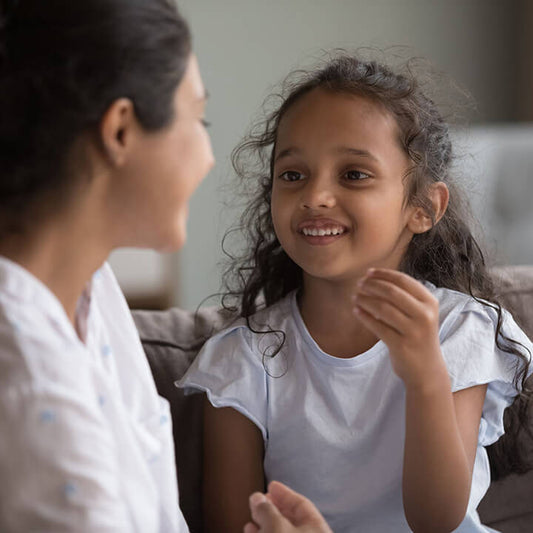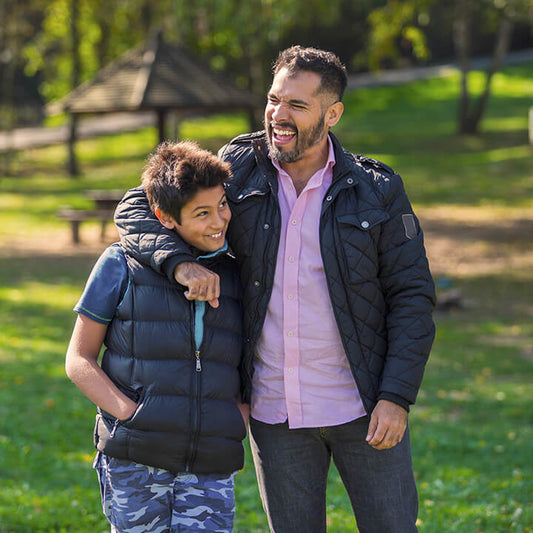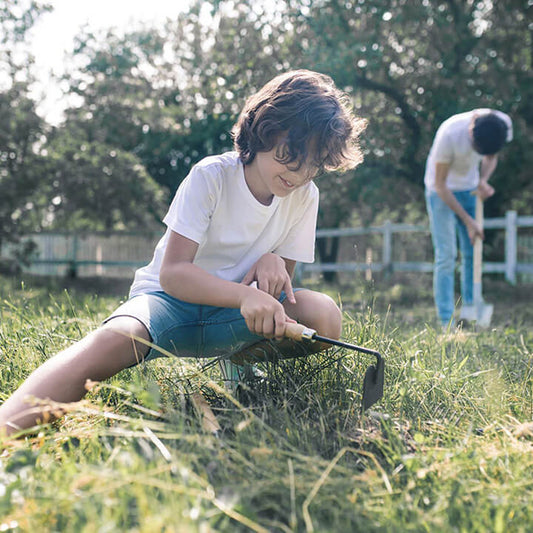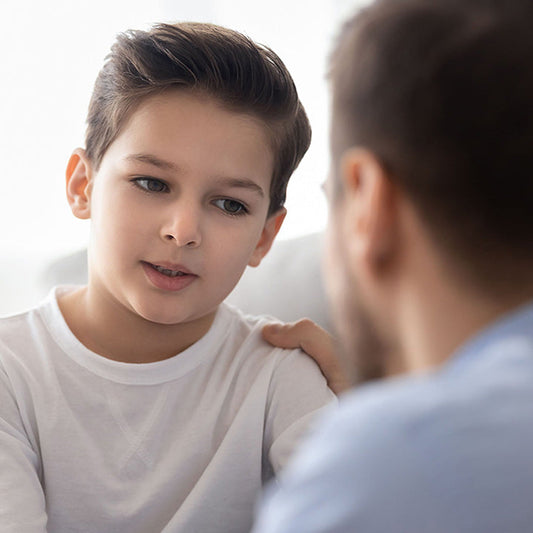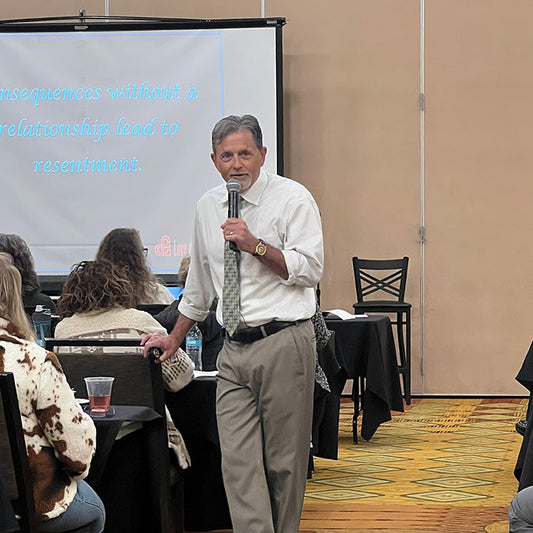Why Lecturing Often Backfires
Have you ever noticed how naturally a lecture rolls off the tongue the moment you become a parent or teacher? It’s as if a part of the brain that had been dormant suddenly activates—full of advice on homework, healthy eating, chores, and responsibility.
A fundamental law of physics is that every action has a reaction, and our lectures often spark a reaction in kids. When we start lecturing, they immediately shut down. Instead of engaging, they mentally check out. One moment you’re passionately explaining the dangers of running in the hallway, and the next, your first grader is imagining what’s for lunch.
Why Does Talking More Often Work Less?
Often, we can learn much from our mistakes as well as from those made by others. Over the past forty years, we’ve noticed that successful parents and educators—especially those who focus on positive parenting solutions—understand the following concept:
The more words we use when kids are misbehaving or acting irresponsibly, the less effective we become.
Lecturing, while often well-intentioned, usually creates resistance. Kids may tune us out, push back, or even pretend to comply just to end the monologue. This leaves parents and teachers feeling frustrated and unheard—and kids feeling misunderstood.
What’s More Powerful Than a Lecture?
Successful parents and educators have discovered a more effective approach: asking open-ended questions. When we replace lectures with thoughtful questions, we achieve three powerful things:
- We show understanding. Open-ended questions show kids that we genuinely want to understand their point of view.
- We spark thinking. These types of questions create a kind of “mental itch” that kids feel compelled to scratch. Even if they don’t respond out loud, their brains keep working on it.
- We earn the right to be heard. Listening first builds a foundation of respect. Kids who feel heard are far more likely to listen when it’s our turn to speak.

What Do Good Questions Look Like?
Here are a few examples of open-ended questions that encourage reflection:
- What do you think about how you are doing right now?
- What are your ideas on whether bicycles, like your new one, ever get stolen?
- How do you feel about kids experimenting with drugs?
- How do you think some kids put themselves in danger while chatting online?
Even if their answers are silly, strange, or scary, our willingness to listen dramatically increases the odds that they’ll listen when it’s our turn to speak.
Do Kids Control Whether They Listen to Us?
Absolutely—and they know it! Trying to control their listening by using more words or force often backfires. Whenever we pretend to have control over things we clearly do not, it erodes their respect for us and creates a battle they can’t resist.
Some of the best opportunities for listening instead of lecturing occur when kids do the unexpected.
Want More Help for the Unexpected?
For tips on how to handle these situations, listen to our audio, Oh Great! What Do I Do Now? Those surprising moments—when kids test limits or throw us curveballs—are golden opportunities to practice listening instead of lecturing.
Thanks for reading!























